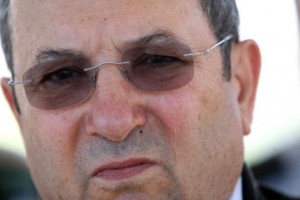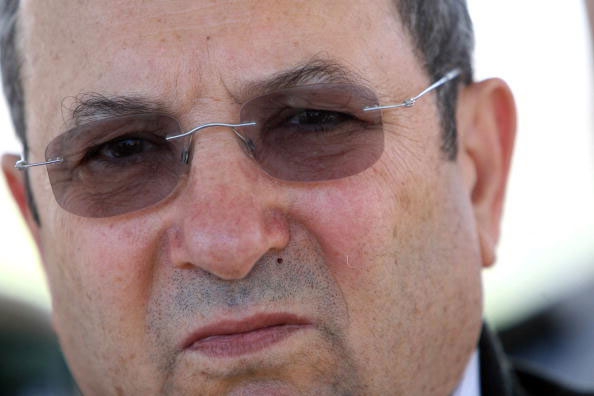
Three weeks ago, Haaretz's Amos Harel�broke the story�that Iran had diverted a large quantity of enriched uranium to civilian scientific research, delaying the progress of its nuclear program by at least half a year and allowing Israel to take more time in coming to a decision on a possible military attack. The report was based both on the International Atomic Energy Agency's�August report�and additional intelligence information that reached defense sources.
This information was what lay behind Prime Minister Benjamin Netanyahu's speech at the United Nations General Assembly in September, where he predicted that Iran could reach nuclear capability by next winter, an extension of previous Israeli warnings that the "moment of truth" would be reached in 2012.
Haaretz's report was based on unnamed sources within Israel's defense community. They remained unnamed until Tuesday when Defense Minister Ehud Barak met with British journalists during a whirlwind visit to London.
In an interview with the Daily Telegraph, Barak said that the decision of Iran's nuclear establishment to convert 38 percent of their uranium stockpile into fuel for their civilian research reactor that this development "allows contemplating delaying the moment of truth by eight to 10 months."
In the interview, Barak talks at length of Iran's possible motives in creating this delay - admitting that if they had not done so, matters would have probably come to a head around now, on the eve of the American presidential elections - and his skepticism that sanctions will be enough to make the Iranian regime relinquish their nuclear ambitions.
Barak also has these talks quite often with Israeli journalists, though without allowing them to attribute the information to him. Why did he feel that he could go on record with a British journalist?
Israeli civilians will have to live with the consequences of the decisions of Israel's leaders, or their lack of decisions. But Barak doesn't feel the necessity to share these details with them directly. And now he is asking for their confidence in the upcoming elections. What reason could he have for not telling this important information, why Israel is not going to war in the next few months?
There could not be any security considerations � if Israelis can't hear this information from their defense minister, then how could it be any less sensitive when told to the foreign media? The disturbing yet regretfully most plausible explanation is that, in Israel, Barak does not want to endorse any information or development that may seem to decrease the urgency and magnitude of the Iranian threat. After all, if the Iranians for their own reasons are dragging their feet on the road to the bomb, imposing upon themselves delays, they may not actually be planning to blow us up to kingdom come. And if the Iranian threat is not that immediate, then why on earth do we need to vote for Barak or Netanyahu who have spent most of the last two years telling us it is?
If it seems unlikely to you that Barak would withhold from the Israeli public crucial information regarding its future survival for narrow political reasons, then perhaps you could propose a more likely scenario.
The Iran Project is not responsible for the content of quoted articles.











